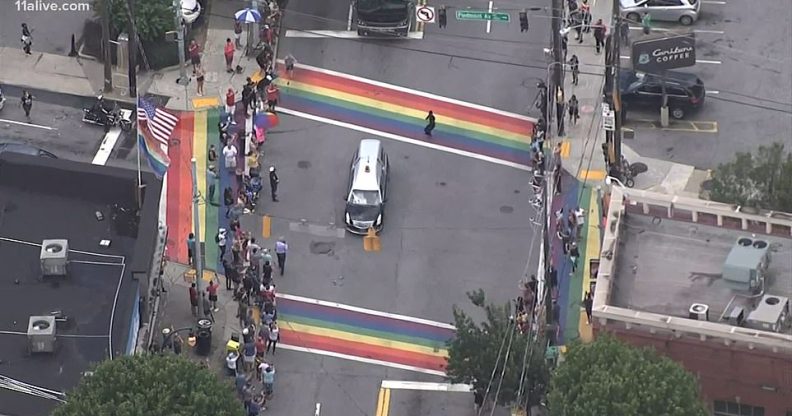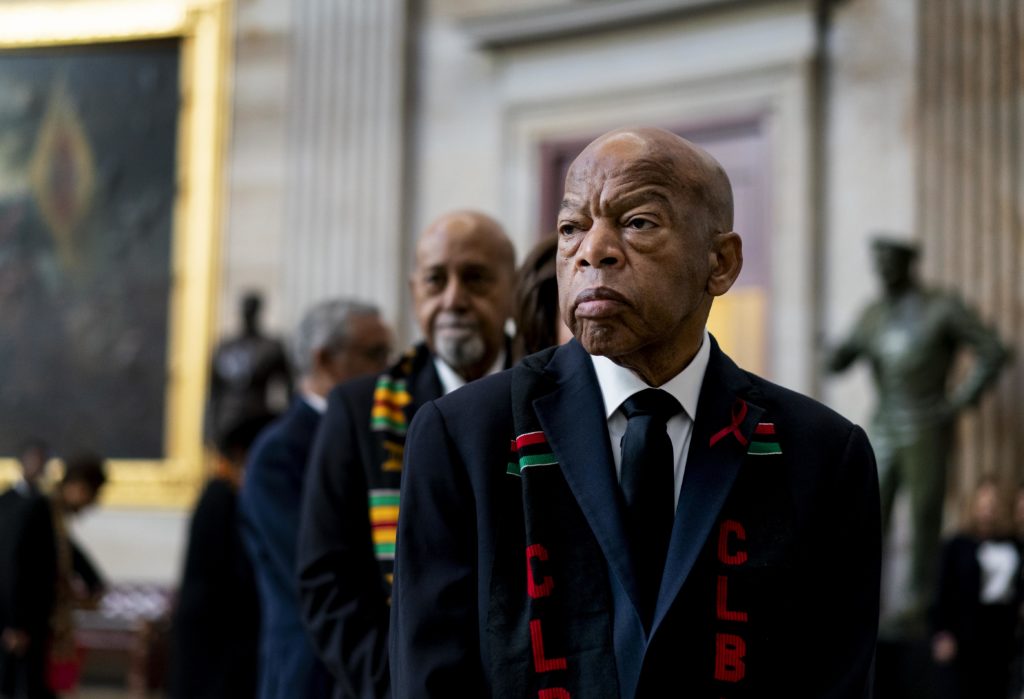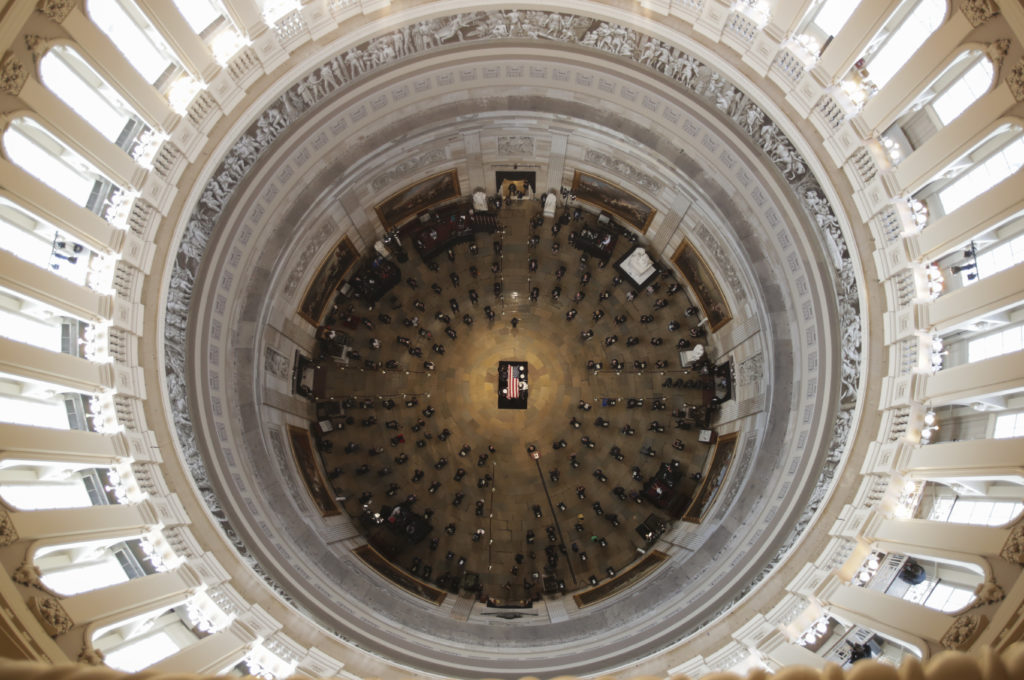Civil rights leader John Lewis’ casket makes poignant stop at rainbow crossroad to honour his LGBT+ allyship

The casket of John Lewis, a towering giant in the civil rights movement, pauses as crowds cheer at a Pride flag-inspired crossroads in Atlanta, US. (Screen capture via Facebook)
Ahead of John Lewis’ funeral, the car carrying the late civil rights leader made a brief pause at a rainbow crossing, honouring his life-long dedication to the LGBT+ community.
Lewis arrived at his final resting place in Atlanta Wednesday (July 29), having lay in state in the US Capitol and crossed the famous Edmund Pettus Bridge in Selma, Alabama one last time.
As his hearse was driven through the Georgia capital, the car briefly paused at the rainbow-splashed intersection of 10th Street and Piedmont Avenue.
Drone footage by WSB-TV and 11Alive of the motorcade procession showed people chanting and singing “We shall overcome” as the casket paused on its way to the state Capitol building.
Mourners thronged the streets, some wearing colourful clothing and face masks, who seemed undeterred by the coronavirus’ devastating impact.
John Lewis was an early forerunner of the LGBT+ rights movement.
On Thursday (July 30), John Lewis’ funeral will be held in Ebenezer Baptist Church, attended by presidents Barack Obama, Bill Clinton and George W. Bush.
The space, where Martin Luther King Jr and his father both served as pastors, has long been a sanctuary to the local Black community.
The late representative died July 17 at the age of 80. A son of sharecroppers, he jockeyed himself into the bloodied frontlines of the campaign to end Jim Crow laws and emerged as a stalwart of the LGBT+ rights movement.
Lewis was, throughout his tenure in Congress, a vocal advocate for the queer cause. He co-sponsored more than a dozen bills which sought to enshrine and protects the rights of LGBT+ folk throughout his storied career as a lawmaker.

John Lewis. (Melina Mara-Pool/Getty Images)
Among the piles of bills he supported, many of which would come to form the foundations of US LGBT+ rights, was the Equality Act. Still awaiting Senate approval, the Act would prohibit discrimination based on sexuality and gender identity.
Lewis also backed the Respect for Marriage Act, which aimed to overturn the same-sex marriage ban, and the Every Child Deserves a Family Act, which blocked agencies from discriminating potential adoptive parents based on sexual orientation and gender identity.
When the Supreme Court legalised marriage equality in 2015, Lewis said in a statement: “As a nation, we cannot say we are committed to equality, if we do not mandate equality for every citizen.
“You cannot have equality for some in America and not equality for all.”

The casket of civil rights pioneer and longtime US Representative John Lewis in the Rotunda of the US Capitol in Washington, DC. (JONATHAN ERNST / POOL / AFP) (Photo by JONATHAN ERNST/POOL/AFP via Getty Images)
Following the Orlando Pulse club shooting, the Georgia representative led a congressional sit-in against the dizzying rates of gun violence. The 2016 siege on the LGBT+ Latinx club – where 49 died – became one of the deadliest attacks on the LGBT+ community in recent decades.
Amid the rampant erosion of LGBT+ rights under the Trump administration, Lewis continued to carry the mantle of morality. He opposed the administration’s brutish rollback of anti-discrimination protections, which have attacked healthcare, education, housing and employment.
When the administration tweaked the Affordable Care Act to enable healthcare providers to discriminate trans people on the day of the four year anniversary of Pulse and in the throes of the coronavirus pandemic, Lewis did not hold back.
“Our nation is in the midst of a public health crisis. Never before has respecting the dignity and worth of every human being been more important,” he said in a press release.
“At a moment when health care access for vulnerable communities is critical, the decision of the administration to issue this rule is a shame, a disgrace, and a blatant desertion of responsibility and duty.”

